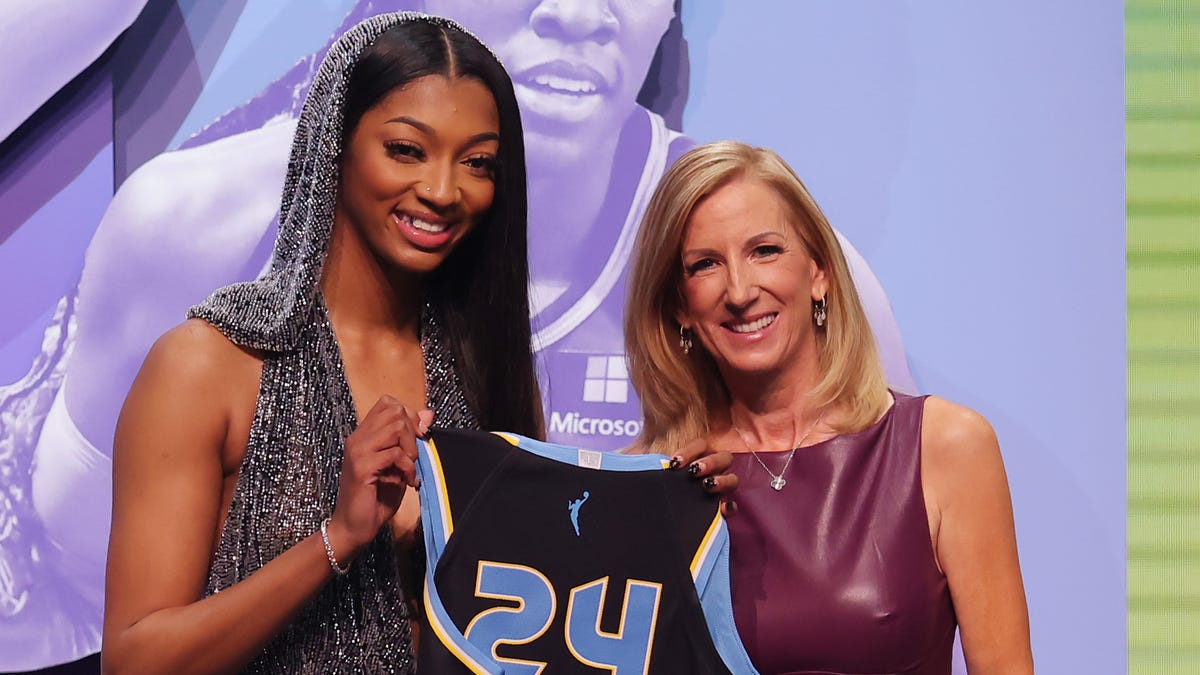WNBA athletes warrant better treatment from fans and their commissioner
Commissioner Cathy Engelbert faces backlash for belittling the racism, misogyny, and homophobia players endure
A rivalry does not justify racist behavior.
Isn’t it simple to say that? However, WNBA Commissioner Cathy Engelbert failed to do so when confronted about the egregious harassment some players are facing. Instead of acknowledging their distress, she deflected with comments about sponsorships and marketing strategies.
After her interview on CNBC upset both Black and white athletes, Engelbert further demonstrated her insensitivity with a statement that came off as robotic.
In a post on X (formerly Twitter) Tuesday night, she said, “During a recent media interview, I was asked about the darker aspects of social media, rivalries, and race. Let me be clear: There is no room for hate or racism of any kind in the WNBA or anywhere.”
This response is inadequate. Far from sufficient.
It’s encouraging to see the WNBA and women’s sports finally gaining the attention they have long deserved, with the intense rivalry between Angel Reese and Caitlin Clark being a significant factor. Clark’s impressive logo 3s and her “did you see that?” passes add to this excitement.
Yet this recognition has also empowered a troubling element of society that uses Clark as a platform to express racial, misogynistic, and homophobic toxicity.
Importantly, Clark has not asked for this attention. She has explicitly stated her disapproval of racism and bigotry, saying, “people should not be using my name to promote those agendas.”
Nonetheless, the abuse continues.
Any player who fouls Clark can anticipate a barrage of hateful messages on social media. After the Indiana Fever defeated the Connecticut Sun last month, one repeat troll sent Dijonai Carrington a meme likening her to George Floyd. Carrington’s crime? Earlier in the season, she stated that Clark ought to denounce the actions of these so-called fans.
Reese revealed on her podcast, “Unapologetically Angel,” that individuals have shown up at her home and followed her. Additionally, she claimed that they have fabricated offensive images of her with AI and sent them to her relatives.
This behavior is absolutely intolerable, with no silver lining to be found. Engelbert could take a lesson from Terri Jackson, the executive director of the WNBA Players Association, who responded to Engelbert’s interview with a strong statement.
Jackson asserted, “This kind of toxic fandom should never be tolerated or overlooked. It requires immediate action and, frankly, should have been addressed a long time ago,” referring to Engelbert’s comments.
She further stated, “Fandom should uplift the game, not undermine the individuals who embody it. Racism and its consequences are NEVER acceptable or justifiable, especially not in the name of economic advancement. This goes beyond basketball – it’s about respect, accountability, and establishing standards for what is acceptable in sports and society.”
Toxic behavior in sports is not unprecedented, nor is it exclusive to the WNBA. Last season, Minnesota Vikings running back Alexander Mattison was subjected to racial slurs after a game. Recently, a staff member from Colorado reported that a Nebraska fan hurled a racial slur at the Buffaloes following their loss to the Cornhuskers.
Moreover, there were notably racist undertones in the rivalry between Magic Johnson and Larry Bird, which can be compared to Reese and Clark’s current competition.
However, the WNBA faces the additional challenge of featuring unapologetically strong women, many of whom openly identify as LGBTQ+.
“There are three distinct factors at play in the WNBA that can provoke this level of hate. Thus, I believe it’s far more troubling and deeply rooted,” remarked Pamela Grundy, co-author of “Shattering the Glass, the Remarkable History of Women’s Basketball,” with an updated edition set to release next year.
“This isn’t a new issue for women in basketball,” Grundy continued. “It reflects a lot of individuals from a very dark part of American society expressing their views in various ways, and they have now targeted women’s basketball.”
These individuals aren’t true fans of Clark, nor of the WNBA, a league renowned for advocating equality and championing the marginalized.
“These are people who exploit her as a means to promote their own hatred or misogyny,” noted Lou Moore, a history professor at Grand Valley State and author of “The Great Black Hope: Doug Williams, Vince Evans and the Making of the Black Quarterback.” “Genuine fans wouldn’t behave this way.”
This behavior is fundamentally unacceptable, underscoring where Engelbert has so significantly failed.
The WNBA is currently experiencing unprecedented growth, evident in record-breaking TV ratings, increased attendance, and greater sponsor interest. Racism, misogyny, and homophobia should not be the toll WNBA players have to pay for this success—and the commissioner should not need to be pressured into publicly recognizing this fact.
Follow YSL News Sports columnist Nancy Armour on social media @nrarmour.

